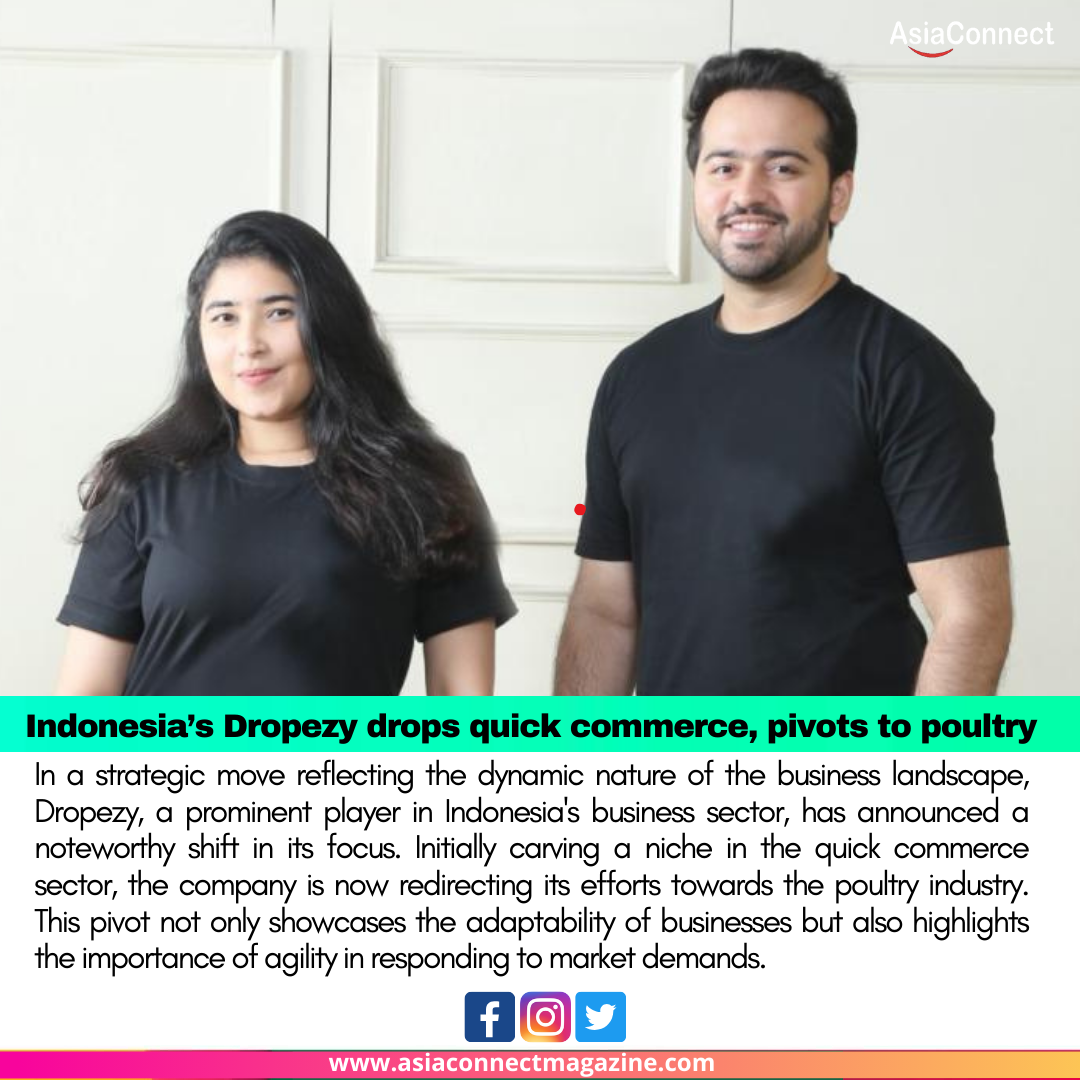In a strategic move reflecting the dynamic nature of the business landscape, Dropezy, a prominent player in Indonesia’s business sector, has announced a noteworthy shift in its focus. Initially carving a niche in the quick commerce sector, the company is now redirecting its efforts towards the poultry industry. This pivot not only showcases the adaptability of businesses but also highlights the importance of agility in responding to market demands.
The Quick Commerce Landscape
Dropezy’s initial venture into quick commerce positioned it at the forefront of the burgeoning trend in Indonesia. Quick commerce, or Q-commerce, refers to the swift delivery of goods, primarily groceries and essential items, within a short timeframe. The sector gained traction, especially in urban areas, due to the growing demand for convenient, on-demand services.
However, as the market evolved and consumer preferences shifted, Dropezy recognized the need for a strategic reevaluation to stay ahead in the competitive landscape.
The Pivot to Poultry
The decision to pivot towards the poultry industry is rooted in a comprehensive analysis of market dynamics and consumer behavior. Indonesia’s poultry sector holds significant promise, driven by the nation’s strong cultural affinity for poultry products and a growing population with an increasing demand for protein-rich food sources.
Dropezy’s strategic pivot involves integrating its supply chain and logistics expertise gained from its quick commerce operations into the poultry industry. The company aims to streamline poultry production, distribution, and retail processes to ensure efficiency and meet the rising demand for quality poultry products.
Addressing Market Needs
The shift to poultry aligns with market needs and presents Dropezy with an opportunity to contribute to the country’s food security while catering to consumer preferences. Poultry is a staple in Indonesian cuisine, and the strategic move positions Dropezy to play a vital role in providing high-quality, locally sourced poultry products to a discerning consumer base.
Job Creation and Economic Impact
Beyond meeting consumer demands, Dropezy’s pivot to poultry has the potential to positively impact the local economy. By investing in the poultry sector, the company is contributing to job creation in various stages of the supply chain, from farming and processing to logistics and retail. This not only supports livelihoods but also aligns with broader economic development goals.
Embracing Agility and Innovation
Dropezy’s pivot exemplifies the importance of agility and innovation in the business world. Recognizing shifts in market dynamics and consumer preferences, the company has proactively adapted its business model to stay relevant and capitalize on emerging opportunities.
Communicating the Transition
Effective communication is crucial during such transitions. Dropezy has emphasized transparency in its communication, explaining the reasons behind the pivot and outlining the benefits it brings to both the company and its stakeholders. Clear communication builds trust and helps manage expectations during times of change.
Future Prospects
As Dropezy enters the poultry sector, it will face its share of challenges, including competition and navigating the complexities of the agricultural supply chain. However, by leveraging its experience in quick commerce, the company is well-positioned to bring efficiency and innovation to the poultry industry.
Conclusion
Dropezy’s pivot from quick commerce to poultry in Indonesia underscores the fluid nature of business strategies in response to market dynamics. The move not only aligns with consumer preferences but also reflects the company’s commitment to contributing meaningfully to the local economy. As businesses continue to evolve, Dropezy’s journey serves as a compelling case study on the importance of adaptability, innovation, and strategic foresight in navigating the ever-changing business landscape.





